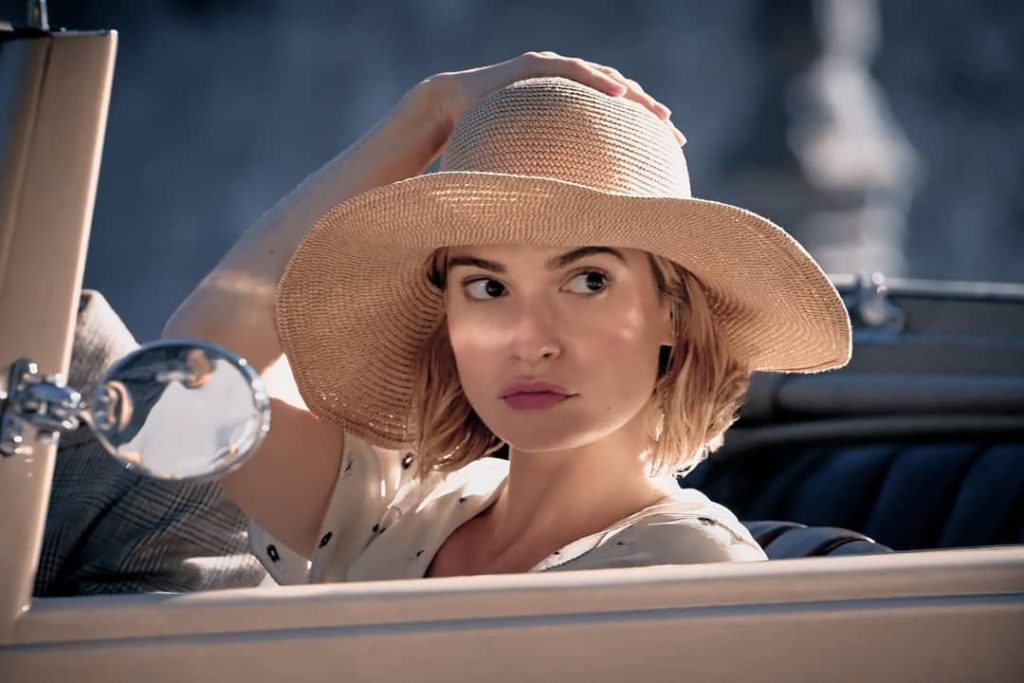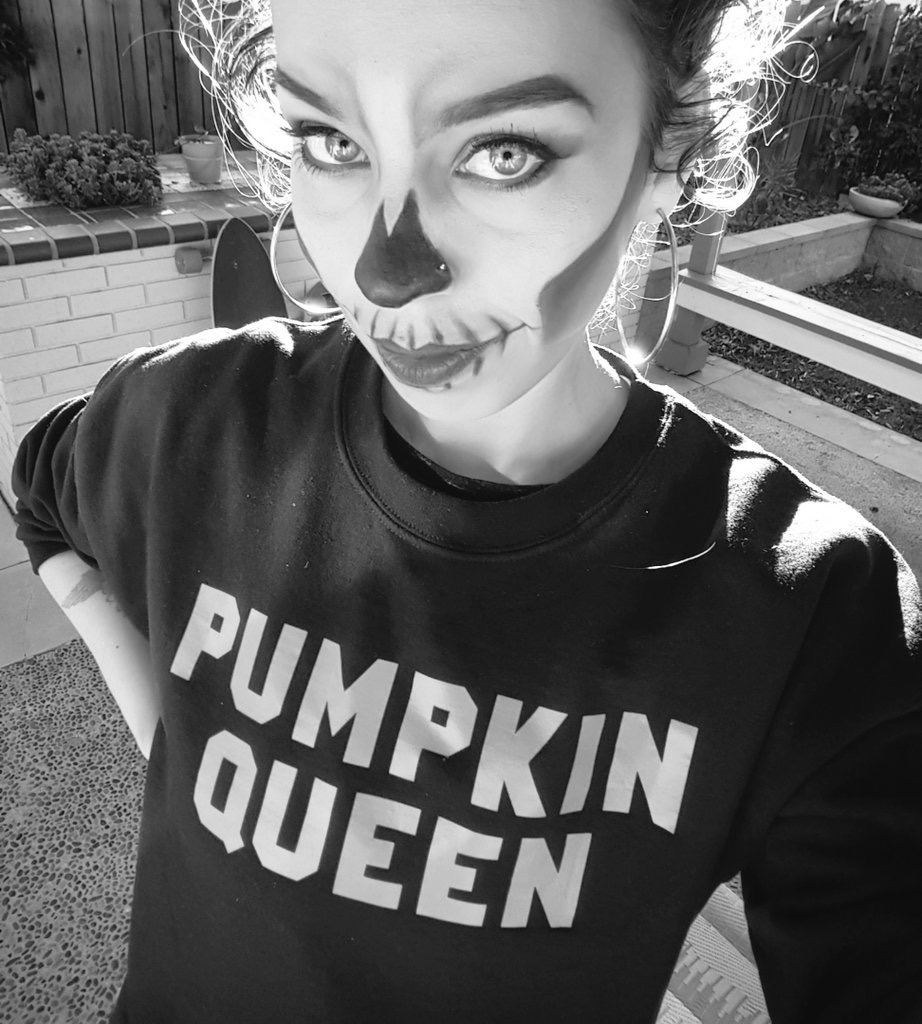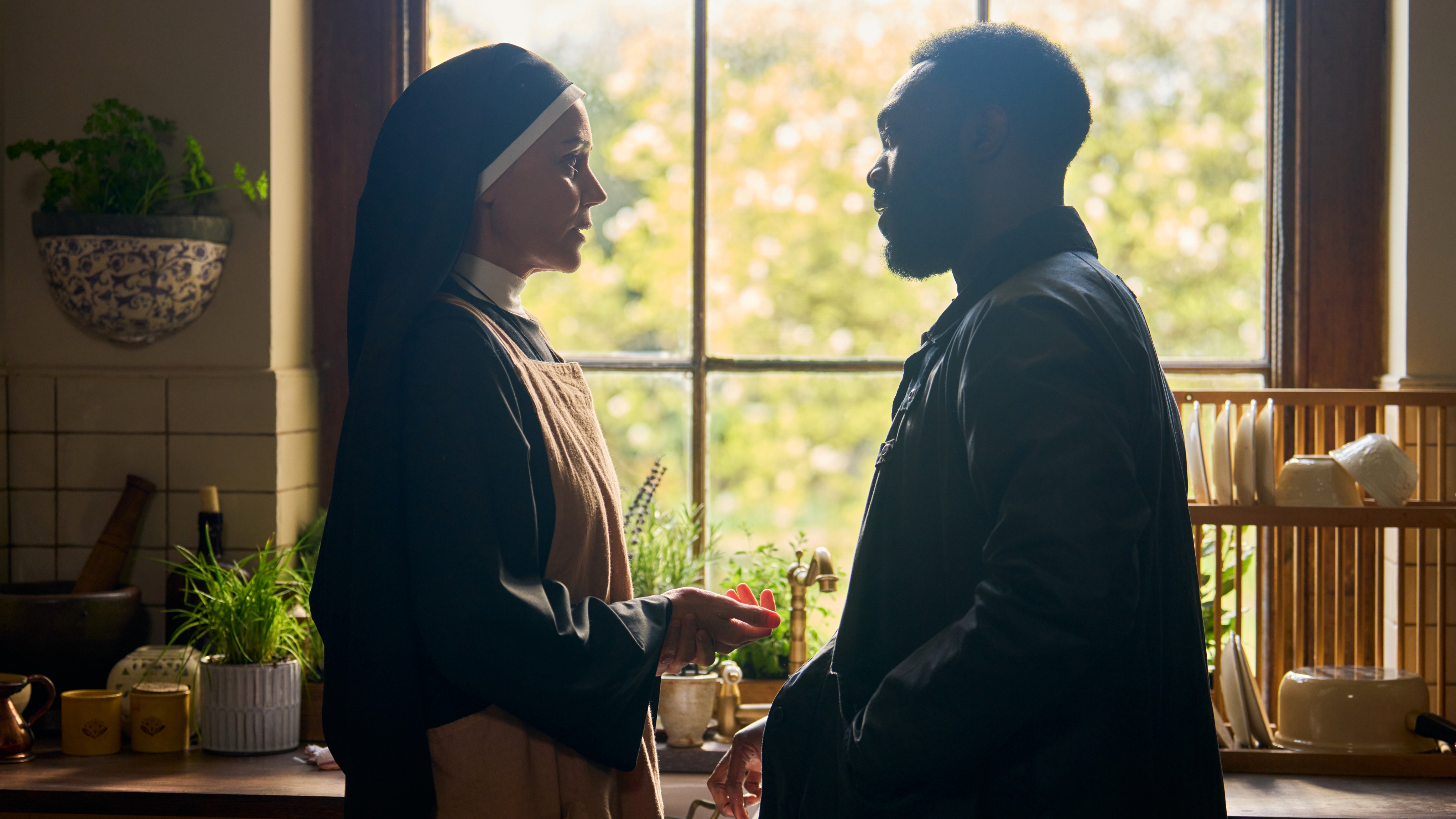What to Watch Verdict
Despite being pretty to look at, Wheatley's Rebecca update has removed much of the bite and purpose from Hitchcock's Oscar-winning adaptation.
Pros
- +
💃🏻Striking production design and cinematography
- +
💃🏻Effective atmosphere
Cons
- -
💃🏻Neutered auteurism
- -
💃🏻Dampened lead performances
- -
💃🏻De-clawed Gothic eroticism
This post contains spoilers for Netflix's Rebecca.
You can read our spoiler-free review here.
Director Ben Wheatley is the mind behind singular genre-benders A Field in England, Kill List, and High-Rise, so a classic psycho-drama novel adaptation is oddly orthodox for him, like watching Yorgos Lanthimos do a Marvel movie. With Daphne du Maurier’s novel of the same title providing the source material, Wheatley’s signature layer of uncanniness is largely missing from the picture, with little to make up for the absence.
Rebecca sees Armie Hammer as Maxim de Winter, a brooding, wealthy man who rapidly courts and marries an un-named and decidedly un-wealthy young woman (Lily James), who then becomes Mrs. de Winter. It seems like a fairytale dream come true; their pairing crosses class lines and the young mademoiselle is surrounded on all sides of subtle and unsubtle admonitions that she is advancing beyond her station.
After the wedding, Maxim and is blushing bride travel to Maxim’s estate-on-the-sea, Manderley. Upon arrival, their relationship promptly begins to deteriorate into chaos. Mrs. de Winter has committed the sin of reminding Mr. de Winter too much of his late wife Rebecca, which she pays for by enduring her husband’s tantrums angry episodes. The housekeeper, Mrs. Danvers (Kristin Scott Thomas) intensifies the hostility with her zealous devotion to her late mistress. From early on, the relationship seems doomed to crash and burn.
A quarter of the way in, Wheatley’s trademark folk-uncanniness finally makes an appearance Rebecca’s aesthetics, with a wide-lensed introduction to Manderley as a femme minstrel croons a warning over acoustic guitar twangs. The same moment repeats at multiple points throughout the two-hour runtime, with the frail, meek young woman consumed by the specter of her predecessor. Wheatley is at his most comfortable working with strained harmony, and that occasionally peeks through the seams of the stuffy drama. It’s the in-between moments that, while lovely to behold, are as empty as Rebecca’s old bedroom.
Production designer Sarah Greenwood toils to craft the panoramic looks of a dramatic epic. Monte Carlo resorts and cliffside manors alike are both fascinating and intimidating as a result of her work. The camerawork drowns the heroine in the ornate spaces, the world she’s entered threatening to overwhelm her the way that the interiors of Crimson Peak swallow its young, doe-like lead. Manderley, filmed in Dorset and Hertfordshire, England, is magnificent. A shot of Lily James standing atop a lush balcony surrounded by thorny cacti is a beautiful emblem for her introduction into a space that doesn’t welcome her. “Manderley, it’s more than a house,” Maxim tells her, “it’s my life.”
Armie Hammer is in a tight spot; Maxim de Winter is an unaffected man and as such, the actor has little emotive headroom before hitting the boring threshold. Moments of warmth towards the new wife are diluted by a lack of conviction, and even his bouts of anger are defanged by the deadened gaze behind them. It could simply be in the way the role is written—the screenplay has three cooks in the kitchen (Jane Goldman, Joe Shrapnel, and Anna Waterhouse)—but Hammer simply does not command the frame.
It would be too on-the-nose to omit Lily James’ turn as the nameless leading lady. Oscillating between shy apprehension and tormented martyrdom, James serves the role as required. The problem comes in the latter half of the film, more of a weakness in the armor than a poor performance overall: while the character is heavily intimidated by the towering remembrance of the woman she tries to replace, gone is the sexual envy that hung over the master bedroom in du Maurier’s tale. It’s an odd choice because what could be more psychologically torturous than the idea that your new man’s dead ex is not only ethereally present in your marital bed, but possibly mocking your inexperience from her grave? The consequence of that missing carnal jealousy is an incomplete arc that no amount of pouting lips and sniffles can distract from.
Acting praise is due to Ann Dowd, who slays with a stare and wounds with casual derision. Mrs. Van Hopper does not hesitate to constantly remind Mademoiselle (as she is called before she becomes Mrs. de Winter) of her bottom-rung social status. Her performance is only matched by that of Kristin Scott Thomas as the ice-cold housekeeper, Mrs. Danvers. Pale as a ghost herself and sporting a severe thin crimson lip color, Thomas makes a habit of looking through her new mistress, passing more judgement in a single up-and-down glance than a gallery of court justices. Filmed from low angles and confrontationally filling the screen, she takes on an imposing air of authority not unlike memorable state trooper in Hitchcock’s Psycho. Through her, Mrs. de Winter suffers a death by a thousand papercuts; after unrelenting passive-aggressive comparisons to the late Rebecca, nothing is so devastatingly barbed towards the new lady of the house as Thomas’ matter-of-fact delivery when she tells her that Rebecca “was the love of his life.” On the other hand, it’s perhaps the greatest transgression of the movie entire that the scribes watered down the sapphic nature of Danvers’ intense loyalty to her dead superior. Judith Anderson's lightning-rod performance, completed eighty years prior in the thick of Production Code restrictions, is somehow the more direct (and thus distinct) than the update.
It’s not just Mrs. Danvers, either; every member of the estate’s support staff is bewitched by their memories of Rebecca. Old clothes have become holy artifacts, her bedroom a shrine of frigid cool palettes. Touching her memory is heresy; the first masquerade ball since her death goes horribly wrong when, through a tag-team of misfortune and malevolence, Mrs. de Winter ends up appearing in a costume that bears an uncanny resemblance to the former aristocrat. Daphne du Maurier’s Gothic powerhouse plot is strongest when left alone in these class tensions; attempts to re-vamp the narrative to something vaguely more femme-empowering fall flat and muddle the sense of dread.
It seems a cruel Kobayashi Maru test to assign any living director the task of adapting a story that was already done once before by the Master of Suspense. Rebecca (1940) earned Alfred Hitchcock his only Oscar for Best Picture, and for good reason: it was spellbinding. With leading man Laurence Olivier in the 20th century adaptation, it seems even crueler to put Armie Hammer in the same shoes. Despite the efforts of all involved, Wheatley’s Rebecca is like its plain-Jane protagonist: standing in the shadow of a legacy far greater than it could ever match.
Anya Stanley is a FANGORIA columnist, published author, film critic, and staunch Halloween 6 apologist. Her work can be found at AV Club, Crooked Marquee, Birth. Movies. Death., and her website and on Twitter.












